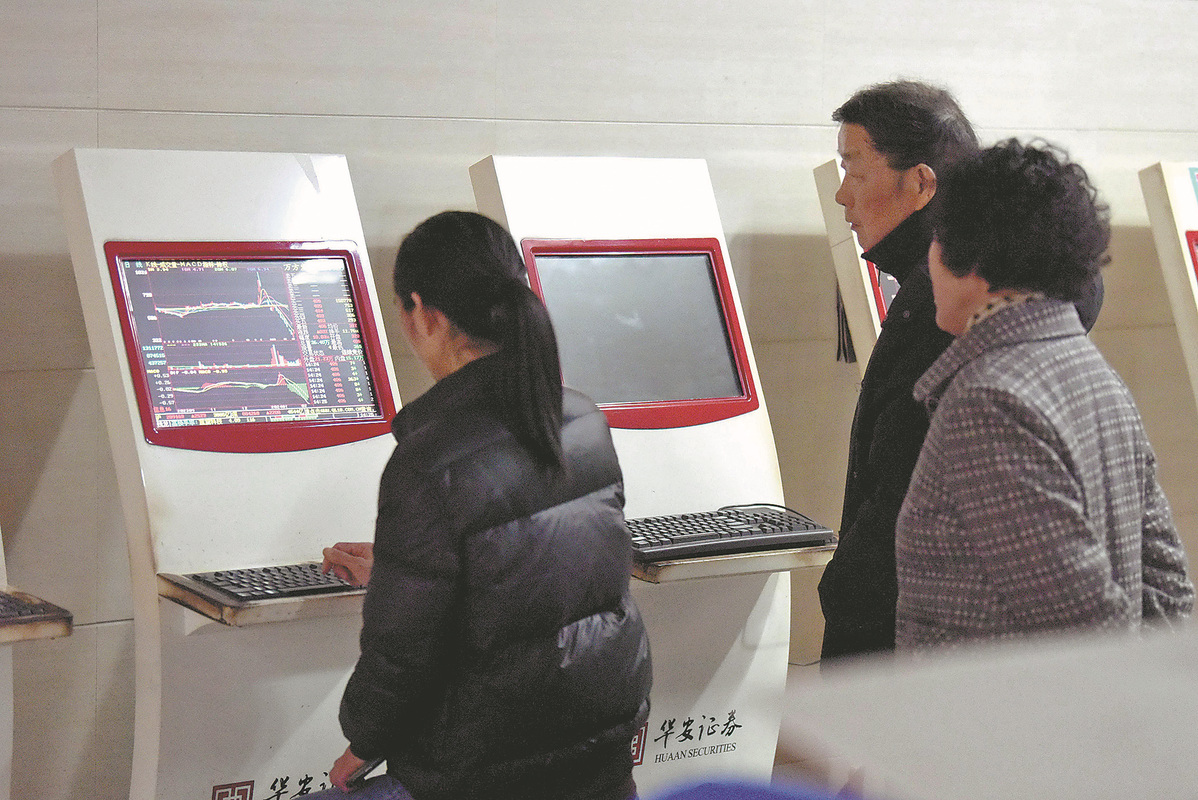Capital market set for sound development
With 600m investors buying fund products, sustainability, society enter bourses' lexicon
By SHI JING in Shanghai | CHINA DAILY | Updated: 2024-04-08 07:08

One month after taking over as chairman of the China Securities Regulatory Commission, Wu Qing was outspoken in his criticism of questionable market practices. During a news conference at this year's two sessions in early March, he said "profiteering should not be the purpose of IPOs". That was in keeping with his reputation of being a no-nonsense official: Wu was known for his stern attitude toward violations and illegal activities during his earlier stints at the top market watchdog.
"While adhering to laws and regulations, stricter evaluation of IPO registration must be taken," said Wu.
On Aug 27, the CSRC had announced that it will tighten the pace of IPOs. Only 26 IPOs had been reported as of March 22, down nearly 50 percent year-on-year. But at least 670 companies have been waiting for the CSRC's evaluation of their IPO applications. In an unprecedented development, at least 75 companies have withdrawn their IPO applications on their own till date.
"In some cases, IPO had come to mean large-scale profit distribution. Under such circumstances, self-discipline will not suffice as stakeholders will be easily enticed by huge profits," said Xue Hongyan, deputy director of the Star Atlas Institute of Finance.
In this sense, a tighter grip over who enters the Chinese stock market is quite important. It is with a clearer accountability mechanism and strengthened punishment that people violating laws and regulations may eventually face the results of bankruptcy. Only serious crackdowns can deter fraudulent issuances or financial frauds, said Xue.
Both entry into and exit from the A-share market should be improved, experts said. At the March news conference during the two sessions, Wu of the CSRC said that stricter delisting standards will be adopted to ensure that the disqualified ones will be removed from the market. The regulator will also encourage weak or unhealthy companies to delist voluntarily, he said.
By March 29, six companies had delisted this year, on a par with the quarterly high reached in the first quarter of 2021.
Yang Chengzhang, chief economist of Shenwan Hongyuan Securities, said delisting criteria should be differentiated for different A-share boards. Private equity firms and secondary funds should be more actively included in the regional equity trading markets so that over-the-counter market can receive delisted companies.
"Delisting is of much importance in advancing the high-quality development of the Chinese capital market. More attention should be directed to delisting and companies' restructuring so that supply and demand can be more reasonably balanced in the stock market," he said.
"Efforts should be made to help local governments, companies and investors understand delisting in a more comprehensive way. Delisting is just a common practice in the capital market. It should not be considered a smirch on companies' reputation or business."
Regional financial regulators in Beijing and Shanghai were in the spotlight in late March, mainly because of their on-site inspections of a large number of mutual funds. Although they clarified that these were regular inspections, "not raids", their actions were conducted shortly after the CSRC said in a guideline released on March 15 that daily supervision, on-site inspections and law enforcement should be strengthened.
Data from the Asset Management Association of China showed that the size of the Chinese mutual fund market had approached 30 trillion yuan by the end of February. Up to 200 million Chinese had invested in the country's stock market, and 600 million Chinese had accessed the capital market by purchasing fund products sold via various platforms, said Yang Delong, chief economist of Shenzhen-based First Seafront Fund.
"Therefore, the sound development of the Chinese capital market is not only about the wallets of hundreds of millions of Chinese, but also the sustainability of societal development. Supervision should be strengthened and confidence should be consolidated," Yang said.
shijing@chinadaily.com.cn
























